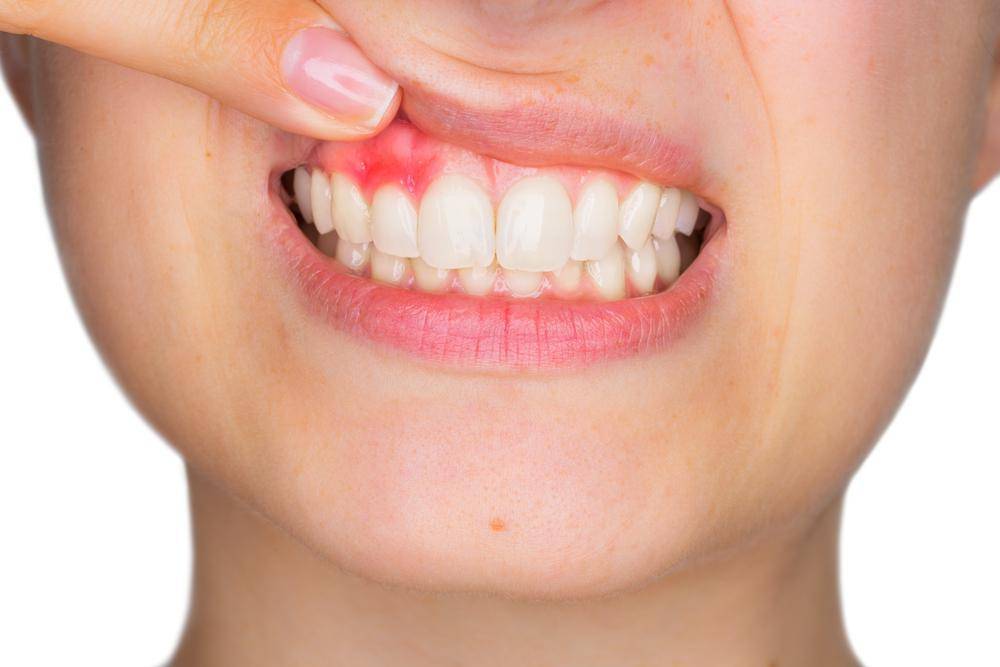 If you have a family history of gum disease, then you are more likely to have problems with your gums. According to the American Dental Association, genetics is a risk factor for developing gum disease. This disease usually starts out as gingivitis, which is characterized by swollen, tender gums that may bleed during brushing. If left untreated, it can develop into periodontitis and eventually lead to tooth loss. Unlike other controllable risk factors such as smoking or poor oral hygiene, your genetic makeup is out of your control.
If you have a family history of gum disease, then you are more likely to have problems with your gums. According to the American Dental Association, genetics is a risk factor for developing gum disease. This disease usually starts out as gingivitis, which is characterized by swollen, tender gums that may bleed during brushing. If left untreated, it can develop into periodontitis and eventually lead to tooth loss. Unlike other controllable risk factors such as smoking or poor oral hygiene, your genetic makeup is out of your control.
What can you do for your teeth and gums to help prevent this disease, even if it runs in your family?
Daily Care
Brush in the morning and at night to cut down on harmful bacteria and plaque. Spend a full two minutes brushing your teeth, focusing on the gum line, those hard-to-reach back teeth and your tongue.
Daily flossing is also essential to help remove substances that can get stuck in between teeth. Eat a balanced diet to make sure your teeth and gums are getting the nutrients that they need to thrive.
What Your Dentist Can Do
See your dentist every six months for regular checkups and professional cleanings. At Snow Family Dentistry, we look for signs of gingivitis as well as periodontitis.
Knowing whether or not gum disease runs in your family will give you more control over your oral health. Not only is it the leading cause of tooth loss, but it also may be connected with other serious health issues, such as cardiovascular disease.
Ask your family members about their experiences with gum health. Have they ever been diagnosed with periodontal disease or noticed signs of gingivitis? Take excellent care of your teeth and always be aware of your own oral health.
Other causes of gum disease include:
Age
Studies indicate that older people have the highest rates of periodontal disease. Data from the Centers for Disease Control and Prevention indicates that over 70% of Americans 65 and older have periodontitis.
Smoking
Tobacco use is linked with many serious illnesses such as cancer, lung disease and heart disease, as well as numerous other health problems. Tobacco users also are at increased risk for periodontal disease. Studies have shown that tobacco use may be one of the most significant risk factors in the development and progression of periodontal disease.
Stress
Stress causes many serious conditions such as hypertension, cancer, and numerous other health problems. Stress also is a risk factor for periodontal disease. Research demonstrates that stress can make it more difficult for the body to fight off infection, including periodontal diseases.
Medications
Some drugs, such as oral contraceptives, anti-depressants, and certain heart medicines, can affect your oral health. You should inform your dental care provider of any medications you are taking.
Grinding Your Teeth
Clenching or grinding your teeth can put excess force on the supporting tissues of the teeth, and could speed up the rate at which these periodontal tissues are destroyed.
Other Diseases
Other systemic diseases that interfere with the body’s inflammatory system may worsen the condition of the gums. These include cardiovascular disease, diabetes, rheumatoid arthritis and others.
Obesity
A diet low in important nutrients can compromise the body’s immune system and make it harder for the body to fight off infection. Because periodontal disease begins as an infection, poor nutrition can worsen the condition of your gums. In addition, research has shown that obesity may increase the risk of periodontal disease.
Think you may have gum disease? Schedule a consultation with Snow Family Dentistry today!








